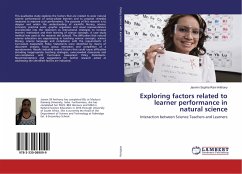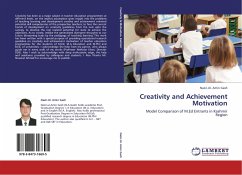The controversy surrounding the academic provision regarding the positive or negative effects of single-gender vs. coed classes has increased much more than ever. Because of sampling differences, data analysis differences and contextual differences, studies of single-sex versus coeducational classrooms has not yielded a clear set of conclusions. Having taught English for several years the researcher have clearly noticed that there is a significant difference between males, females and coed classrooms in terms of technical and vocational students end-of-semester marks. Therefore, the present book endeavors to shed light, as much as it can, on the effect of single-sex/coed class composition on the English learning of Iranian technical and vocational students.The statistical analysis of the results shows that single-sex classes appear to be most advantageous for females whereas males performed better in coed classes. Males class showed the weakest performance.
Bitte wählen Sie Ihr Anliegen aus.
Rechnungen
Retourenschein anfordern
Bestellstatus
Storno








